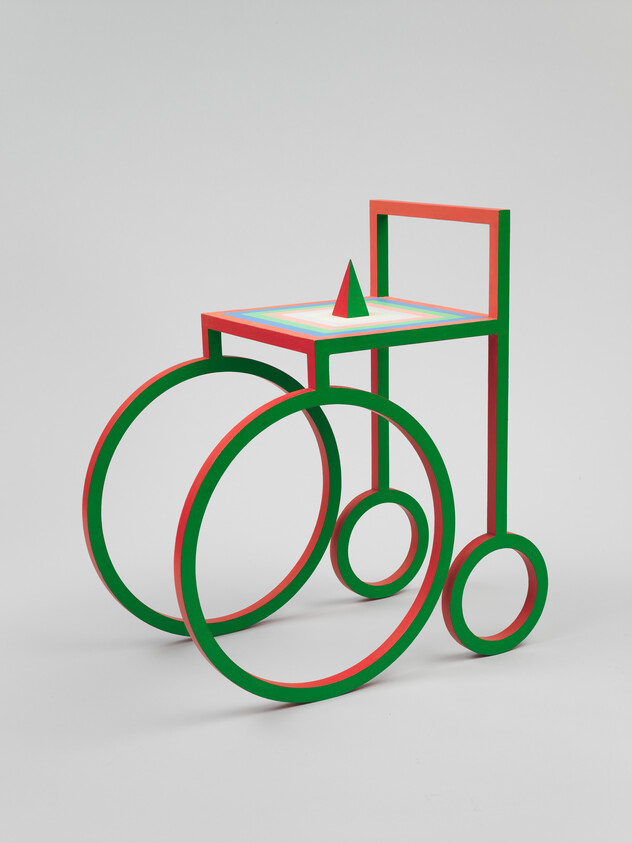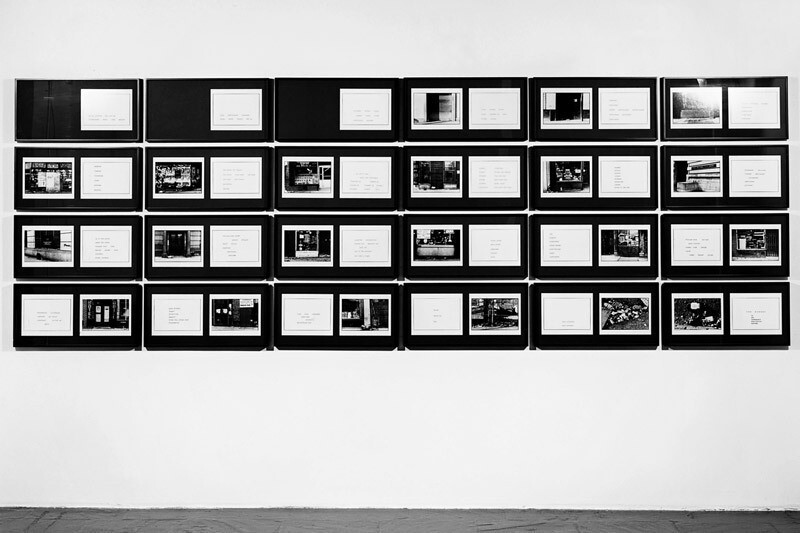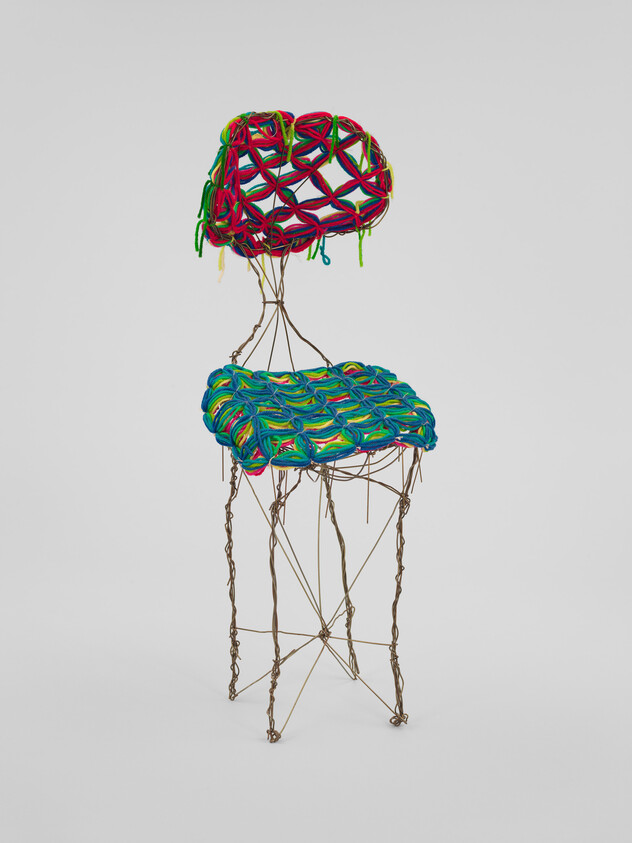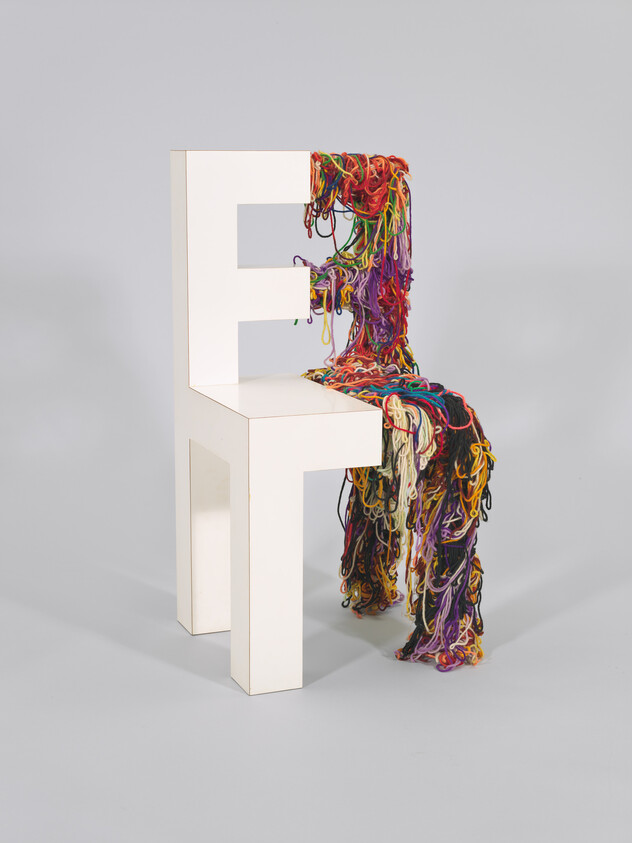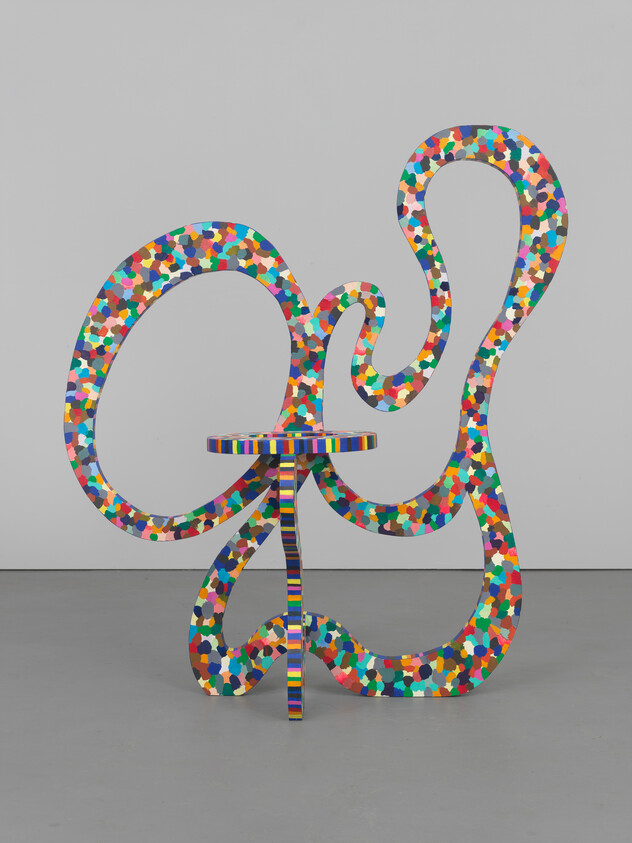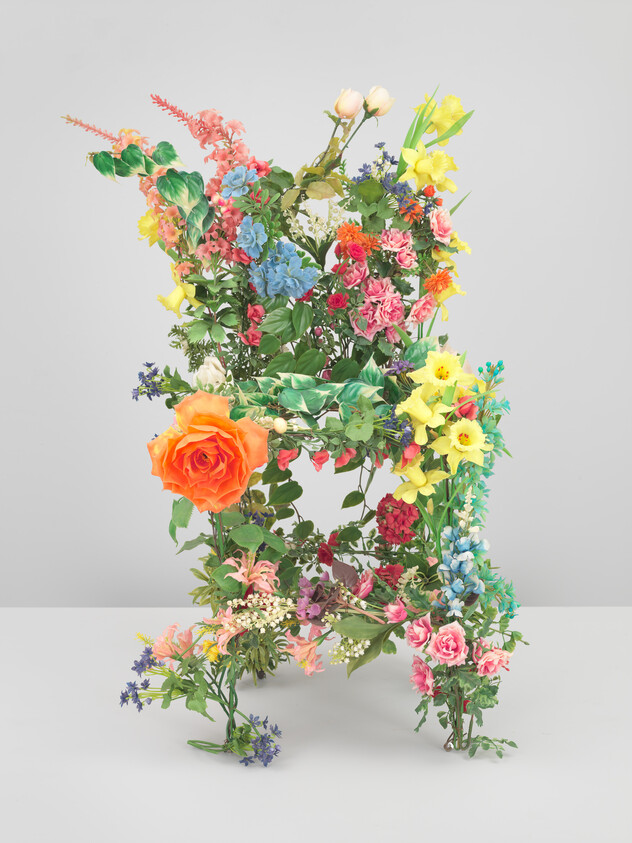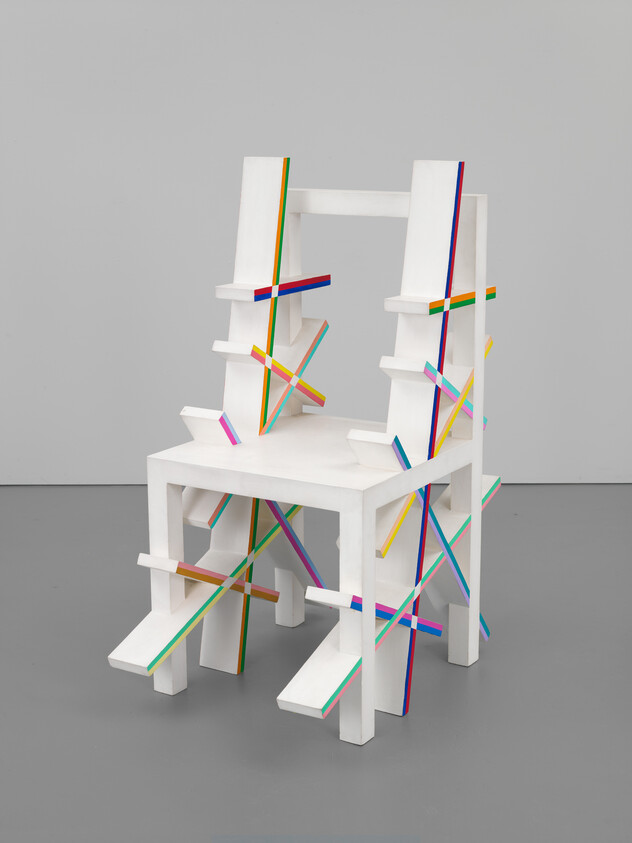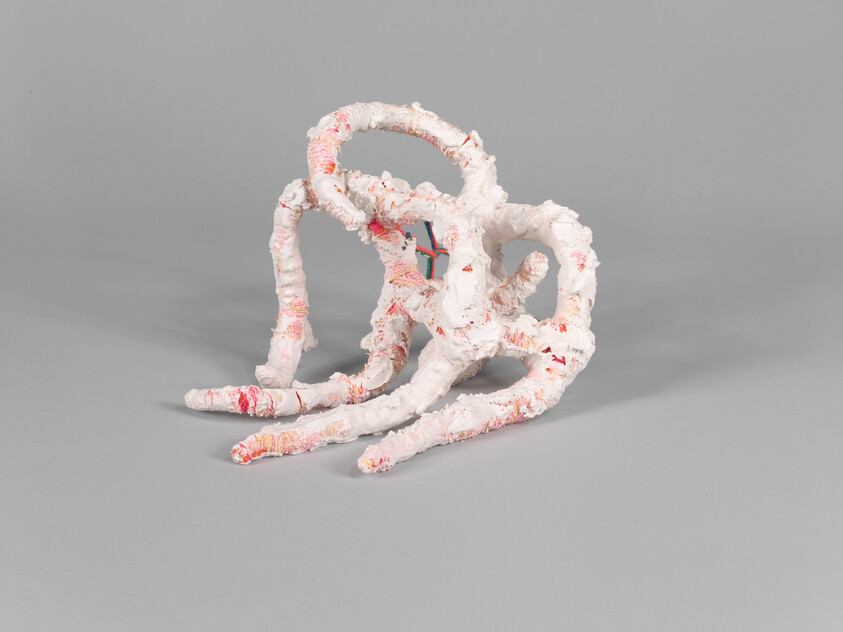This work belongs to a series of twenty-five Chair Transformations (seven of which are owned by the Whitney) that Lucas Samaras created in 1969-1970. Having previously “transformed” other utilitarian conveniences such as eyeglasses, knives, and scissors, Samaras altered his chairs with a perverse, witty assortment of materials including plastic flowers, lengths of colored yarn, wool, tin foil, and plastic wire. Chair No. 16's reductive geometries allude to Minimalism, even as the sharp pyramid in the chair's seat and the disproportionately large circular legs offer a cheeky jab at the emotional austerity of the movement. Samaras has remarked that his Chairs and other Transformation series negate “the possibility of a single Platonic ideal acting as a measure for any physical thing.” Indeed, these chairs defy their intended purpose; most of them are not structurally sound and cannot be sat in. They function instead as poetic surrogates for an absent body, imaginatively—and often humorously—asserting their presence as works of art.
Not on view
Date
1969–1970
Classification
Sculpture
Medium
Painted on plywood
Dimensions
Overall: 30 × 15 1/16 × 28 1/16 in. (76.2 × 38.3 × 71.3 cm)
Accession number
70.1574
Credit line
Purchase, with funds from the Howard and Jean Lipman Foundation, Inc.
Rights and reproductions
© artist or artist's estate

